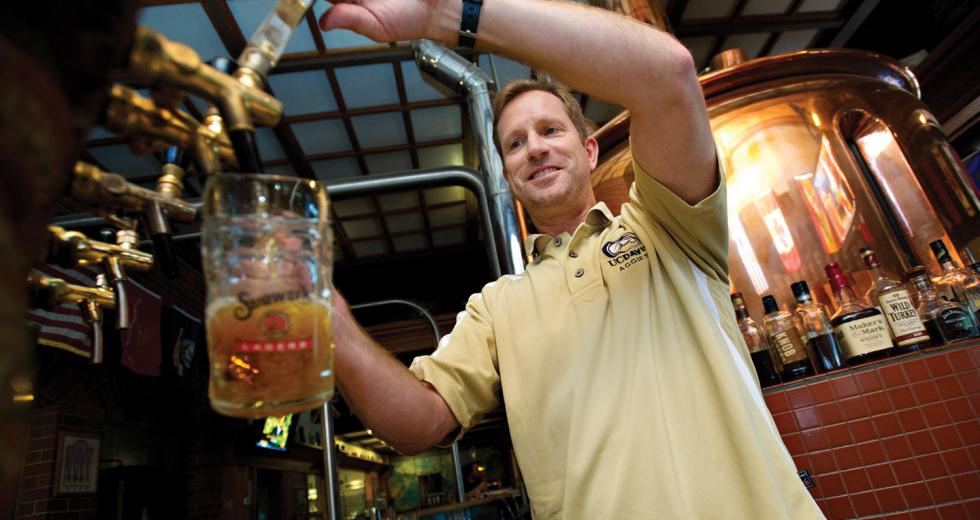Fewer than two miles from a fraternity scene marked by late-night keg stands, chugging contests and beer pong rallies is a quiet UC Davis classroom above Sudwerk Restaurant & Brewery where the next generation of brewers learn the chemistry behind the craft.
Beer tastings are part of the Master Brewers Program, but there’s no revelry here. Students pay $1,260 to learn the technological and biochemical aspects of brewing, including how draft systems work, the role of raw materials, and how to control fermentation.
“It has helped me in every way imaginable,” says Jay Prahl, a program graduate who is now master brewer at Sudwerk and guest lectures for the course. “They cover basically every aspect of brewing, from raw materials all the way to the special lining on a can of beer that makes it flavor neutral in terms of metallic flavor,” he says.
The 18-week course holds 40 spots and has graduated some 1,400 brewers in its 35-year history. Classes start in January, and enrollment is currently booked through 2014. Most of the students are U.S.-born and interested in capitalizing on the growing microbrew industry.
In addition to brewing basics, students learn about sanitation, sensory evaluation and quality control. The program also places interns at breweries in Berkeley, San Diego, or wherever the student is originally from.
UC Davis has offered brewing science as part of an undergraduate degree since 1958. The only comparable program runs through Oregon State University, and it is taught by a graduate of the UC Davis program.
In addition to the 40 accepted students, the course certifies in brewing science about five brewers a year who complete just the first eight weeks of the program. Normally, about half of the certified brewers are representatives of big-name breweries across the globe. Students who stay for the remaining 10 weeks are prepped for an international credential exam provided by the Institute of Brewing in London.
“For young people, microbrewing is a much more exciting scene than going to work for a major brewer,” says professor emeritus Michael Lewis, who has led UC Davis brewing programs for more than 30 years.
The program gained popularity in the early eighties with the emergence of the microbrew industry. Microbrewing allows young brewers to spread their creative wings with new, experimental blends, he says. The craft style is also gaining appeal among consumers because of its wide range of available flavors. However, students soon realize that tamer beer follows a brewing process every bit as intricate as the craft microbrew style.
“At the end of the day, making beer is making beer. The process
doesn’t change much whether you are making a Double IPA or a
Budweiser,” says Lewis. “We talk to students about what styles of
beer there are and what can be made, so they are well versed in
what the brewing scene is in its broadest context.”



